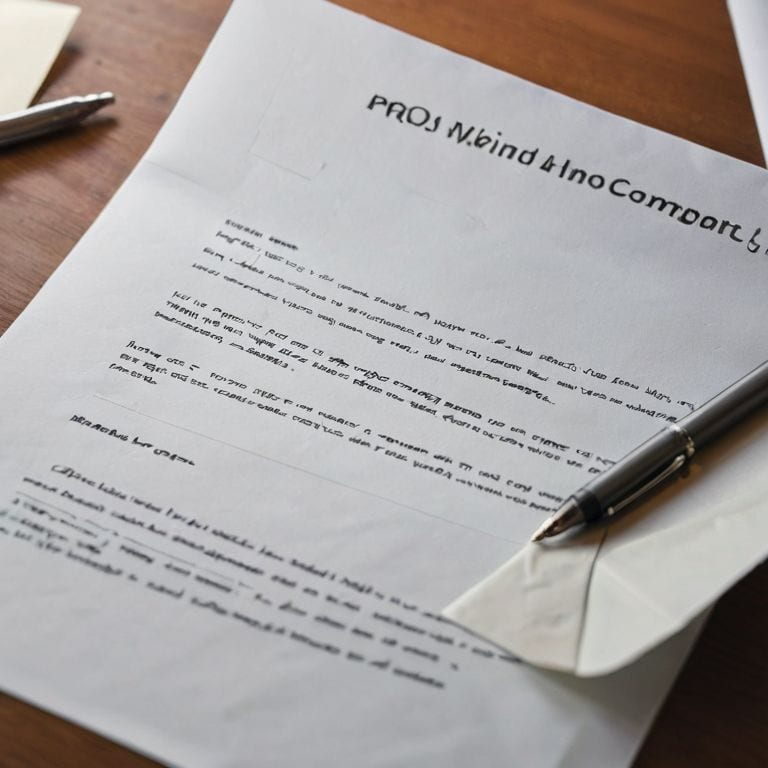I still remember the countless interviews I conducted as a corporate recruiter, where candidates would ramble on when asked to _tell me about yourself_. It was as if they thought the interviewer genuinely wanted to hear their entire life story. Newsflash: they don’t. When it comes to how to answer tell me about yourself, most people get it wrong. They either oversell or undersell themselves, leaving a mediocre impression at best. The truth is, this question is an opportunity to shine, to showcase your professional awesomeness in a brief, impactful way.
In this article, I’ll share my insider knowledge on how to answer tell me about yourself with confidence and strategic flair. You’ll learn how to craft a compelling, elevator-pitch-style response that highlights your strengths and leaves a lasting impression on potential employers. I’ll provide you with practical tips and real-world examples to help you master this crucial part of the interview process. By the end of this guide, you’ll be equipped with the skills to nail this question and set yourself up for success in your next interview.
Table of Contents
- Guide Overview: What You'll Need
- Step-by-Step Instructions
- Cracking Tell Me About Yourself
- Nailing the Introduction: 5 Insider Tips to Ace 'Tell Me About Yourself'
- Key Takeaways to Ace 'Tell Me About Yourself'
- The Power of a Strong Introduction
- Conclusion: Mastering the Art of Self-Introduction
- Frequently Asked Questions
Guide Overview: What You'll Need

Total Time: 30 minutes to 1 hour
Estimated Cost: free – $0 (using existing knowledge and experience)
Difficulty Level: Easy
Tools Required
- Pen and Paper (for brainstorming and outlining)
- Computer or Tablet (for practicing and recording yourself)
Supplies & Materials
- Notebook or Journal (for reflection and self-assessment)
- Example Interview Questions (printed or digital)
Step-by-Step Instructions
- 1. First, let’s get real – when an interviewer asks you to ‘tell me about yourself’, they’re not looking for your entire life story, but rather a brief, impressive summary that showcases your professional awesomeness. To craft this summary, start by identifying your key strengths and skills that are relevant to the job you’re applying for. Make a list of your top accomplishments and qualifications that align with the job description.
- 2. Next, determine your career narrative – what sets you apart from others in your field? What unique value do you bring to the table? This could be a specific skill, a notable achievement, or a unique combination of experiences. Be honest with yourself, and don’t be afraid to highlight your passions and interests that relate to the industry or role.
- 3. Now, it’s time to structure your response. A good rule of thumb is to use the PAST-PRESENT-FUTURE framework: briefly discuss your relevant past experiences, highlight your current skills and accomplishments, and touch on your future goals and aspirations. This will give the interviewer a sense of your career trajectory and how you can contribute to the company’s growth.
- 4. When crafting your response, focus on the benefits you can bring to the organization, rather than just listing your job responsibilities. Use specific examples to demonstrate your skills and accomplishments, and be sure to quantify your achievements wherever possible (e.g., “increased sales by 25% in 6 months” or “managed a team of 10 people”).
- 5. It’s also important to keep it concise – your response should be no more than 1-2 minutes long. Practice your delivery to ensure you can convey your key points clearly and efficiently. Remember, the goal is to pique the interviewer’s interest and encourage them to ask follow-up questions, not to recite your entire resume.
- 6. To make your response even more engaging and memorable, try to tell a story that illustrates your skills and accomplishments. Use a clear narrative structure, with a setup, a challenge, and a resolution. This will help you stand out from other candidates and make your response more relatable and human.
- 7. Finally, prepare to deliver your response with confidence. Make eye contact, use a strong, clear tone, and vary your pace to keep the interviewer engaged. Avoid filler words (like “um” or “ah”) and practice your body language to ensure you’re conveying enthusiasm and interest in the role. Remember, your tone and demeanor can be just as important as the words you say.
Cracking Tell Me About Yourself

When it comes to crafting a compelling narrative, it’s essential to understand that the interviewer is looking for a brief glimpse into your professional life. This is where elevator pitch examples can be helpful, as they provide a concise framework for showcasing your skills and experience. By preparing a solid professional summary, you’ll be able to confidently and effectively communicate your value to potential employers.
To avoid common interview mistakes, it’s crucial to strike the right balance between highlighting your achievements and showing enthusiasm for the role. Personal branding for interviews is key, as it allows you to stand out from other candidates and demonstrate your unique strengths. By incorporating career narrative techniques into your response, you’ll be able to create a memorable and impactful impression on the interviewer.
Effective interview question preparation is also vital, as it enables you to anticipate and respond to common questions with ease. By taking the time to develop a strong professional summary, you’ll be well-equipped to tackle even the toughest interviews with confidence. Remember, the goal is to create a lasting impression that showcases your skills, experience, and fit for the role, making you a top contender for the position.
Avoiding Common Interview Mistakes
When it comes to answering “tell me about yourself”, there are a few common pitfalls to watch out for. One of the biggest mistakes is rambling on for too long – remember, the goal is to pique the interviewer’s interest, not to bore them with your entire life story. Another mistake is focusing too much on your personal life, rather than your professional accomplishments and qualifications. I’ve seen many candidates talk about their hobbies or family, only to realize they’ve forgotten to mention their relevant work experience.
To avoid these mistakes, take a step back and think about what the interviewer really wants to know. They’re looking for a brief, professional summary that showcases your skills and experience. So, focus on highlighting your achievements and qualifications, and make sure to keep your answer concise and to the point.
Crafting Elevator Pitch Examples
To craft compelling elevator pitch examples, focus on showcasing your professional brand in a concise and impactful way. I’ve seen thousands of pitches as a former corporate recruiter, and the ones that stand out are those that clearly communicate a candidate’s unique value proposition. When creating your pitch, think about your key strengths, skills, and accomplishments, and distill them into a brief, engaging narrative.
A strong elevator pitch example might sound like: “As a seasoned marketing professional with a proven track record of driving campaign success, I leverage my expertise in data analysis and creative strategy to deliver results-driven solutions that exceed client expectations.” Remember, the goal is to pique the interviewer’s interest and leave them wanting to learn more about your professional awesomeness.
Nailing the Introduction: 5 Insider Tips to Ace 'Tell Me About Yourself'

- Keep it concise and focused on your professional brand, aiming for a 1-2 minute summary that leaves the interviewer wanting more
- Tailor your response to the job description, highlighting the skills and experiences that align with the position and showcasing your unique value proposition
- Avoid generic openers and instead use a personal anecdote or a relevant career milestone to break the ice and establish a connection with the interviewer
- Use the STAR method to structure your response, outlining a Situation, Task, Action, and Result that demonstrates your problem-solving skills and achievements
- Practice your delivery to ensure it sounds natural and spontaneous, using a conversational tone that makes the interviewer feel like they’re having a discussion, not an interrogation
Key Takeaways to Ace 'Tell Me About Yourself'
Focus on crafting a brief, professional summary that highlights your achievements and career goals, rather than reciting your entire resume or life story
Practice your delivery to ensure it feels natural and confident, using conversational language and avoiding jargon or overly technical terms
Tailor your response to the specific job and company you’re applying for, emphasizing the skills and experiences that align with their needs and values
The Power of a Strong Introduction
Your ‘tell me about yourself’ response is not a biography, it’s a strategic pitch – it should spark curiosity, highlight your value, and leave the interviewer eager to learn more about how you can drive impact in their organization.
Morgan Wells
Conclusion: Mastering the Art of Self-Introduction
As we’ve discussed, answering ‘tell me about yourself’ is not just about reciting your resume, but about showcasing your professional brand and highlighting your unique value proposition. By following the steps outlined in this guide, you’ll be able to craft a compelling narrative that sets you apart from the competition. Remember to avoid common mistakes, such as rambling or being too generic, and instead focus on creating a clear and concise elevator pitch that leaves a lasting impression on your interviewer.
So, the next time you’re faced with the question ‘tell me about yourself’, I want you to feel confident and prepared. Don’t just see it as a necessary evil, but as an opportunity to take control of the conversation and steer it in the direction you want it to go. With practice and preparation, you’ll be able to deliver a self-introduction that is both authentic and impressive, and that will help you achieve your career goals. Keep in mind that mastering this skill takes time and effort, but the payoff is well worth it.
Frequently Asked Questions
How can I tailor my 'tell me about yourself' response to a specific job description without sounding like I'm just repeating the job posting?
To tailor your response without regurgitating the job posting, focus on the skills and experiences that align with the role, then add your own spin. For example, if the job highlights ‘data analysis,’ you could say, ‘With a background in statistics and a passion for uncovering insights, I’ve developed a unique ability to drive business decisions through data-driven solutions.’
What's the ideal length for a 'tell me about yourself' answer, and how can I ensure I'm not rambling or cutting myself off too short?
Keep it concise – 30 seconds to 1 minute max. Think of it as an elevator pitch: brief, yet impactful. Aim for 2-3 key points that showcase your professional brand, and practice your delivery to avoid rambling or abrupt endings.
Are there any specific keywords or phrases that I should include in my 'tell me about yourself' response to make it more impressive to interviewers?
Use keywords from the job description, like ‘innovative problem-solver’ or ‘results-driven professional’, to show you’ve got the skills they’re looking for. Also, throw in some industry buzzwords to sound like an insider – it’ll make your response instantly more impressive to interviewers.














